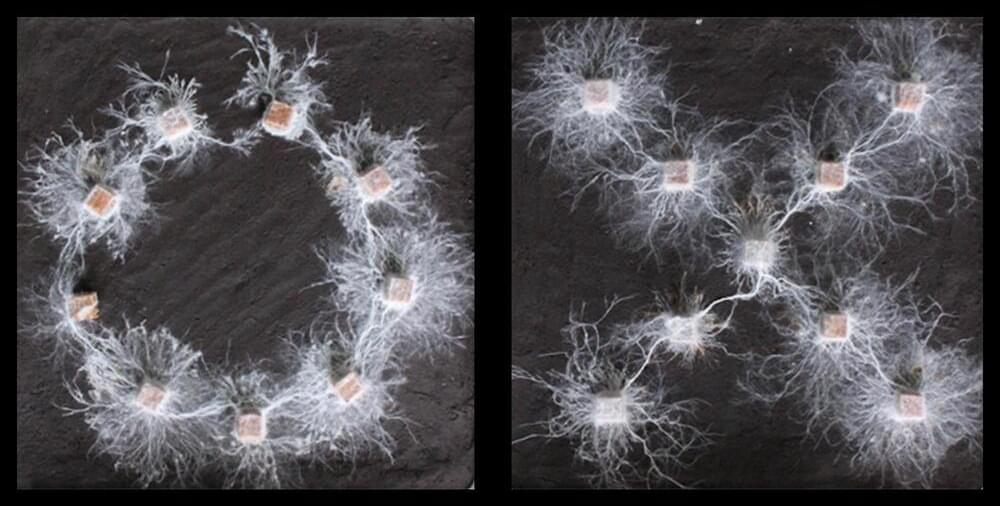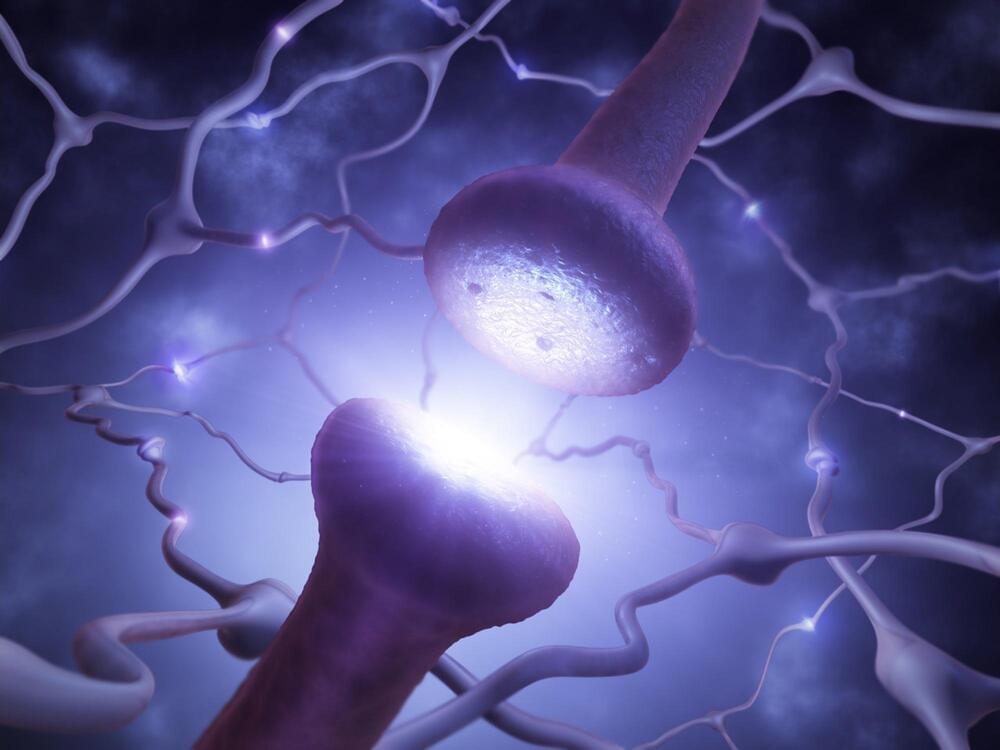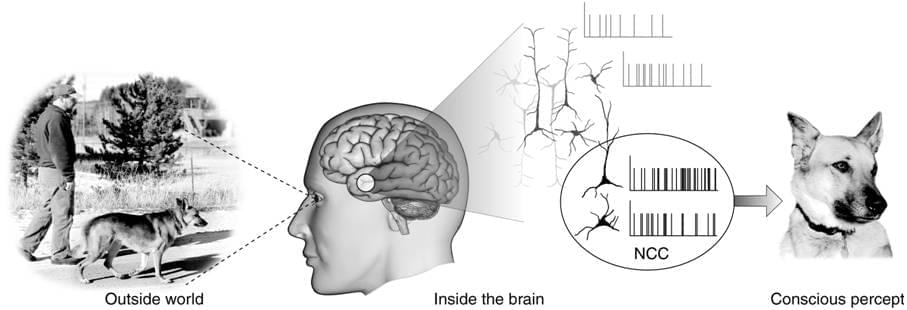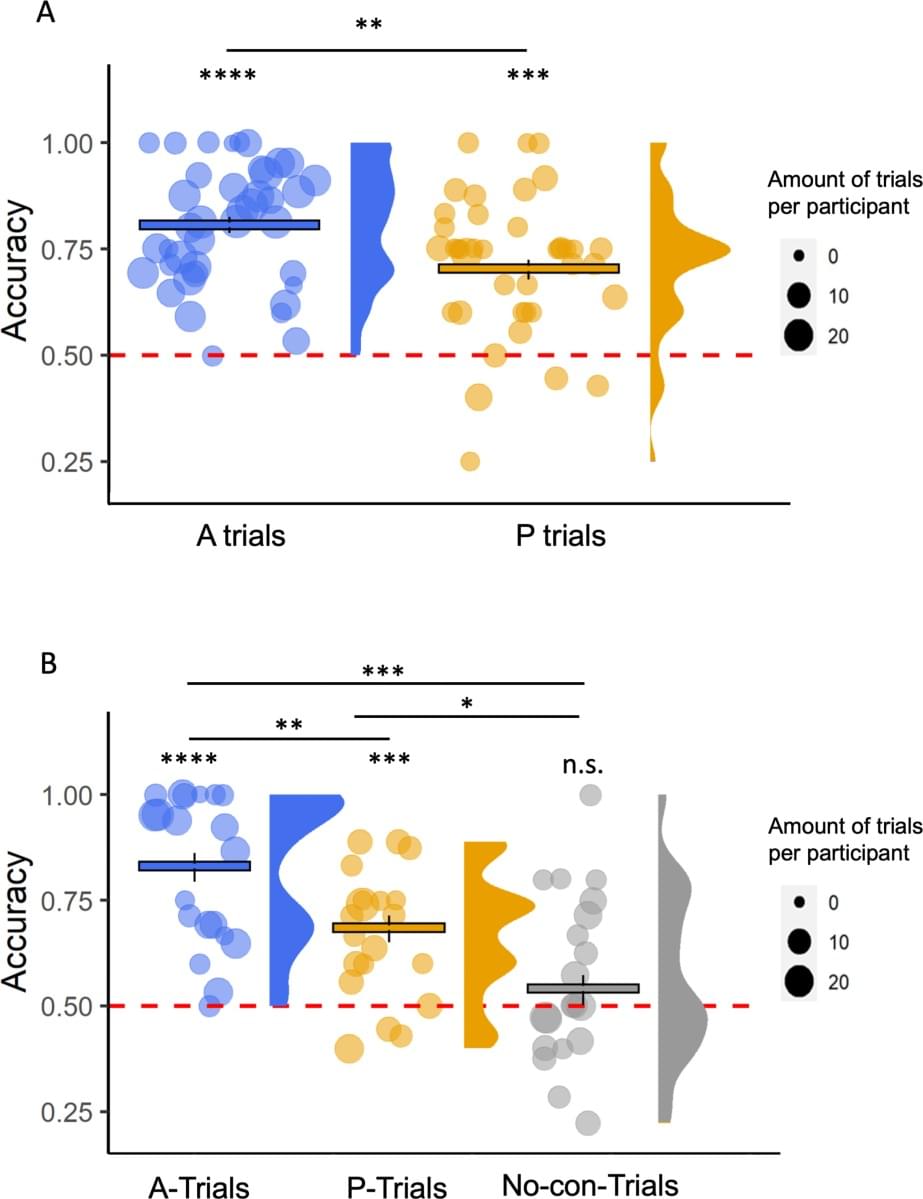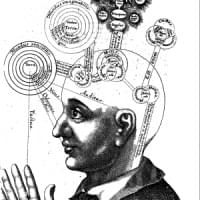Archive for the ‘neuroscience’ category: Page 43
Oct 14, 2024
Two people communicate in dreams: Research turns sci-fi into reality
Posted by Jose Ruben Rodriguez Fuentes in category: neuroscience
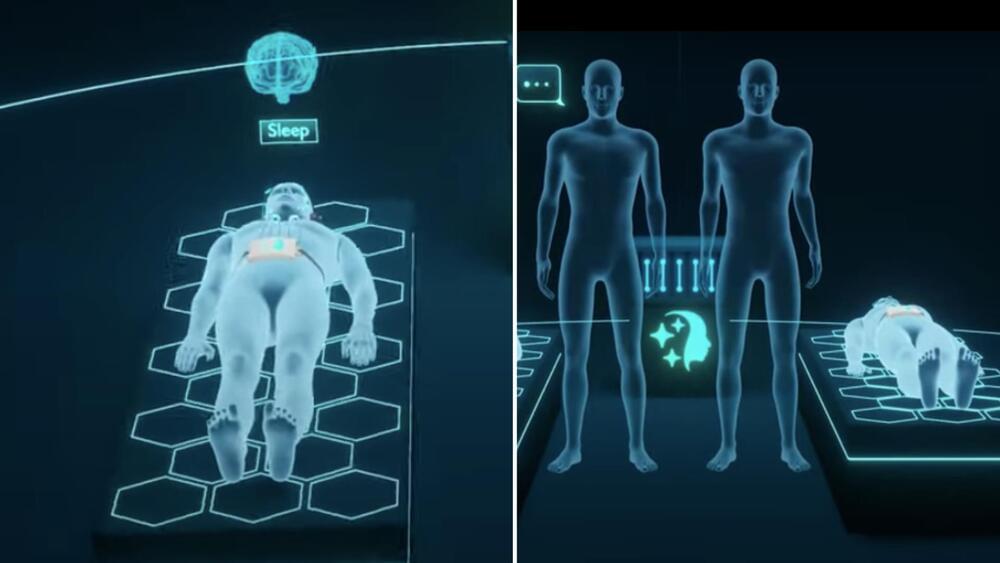
Two participants entered a lucid dream and exchanged first ever ‘chat’ in dreams with specially designed equipment during REMspace experiment.
Oct 14, 2024
Neurons Rewrite the Clock: New Discovery Reveals How We Truly Learn
Posted by Genevieve Klien in category: neuroscience
Scientists discovered that the molecule CaMKII helps neurons encode information over seconds, a key process in learning. This challenges previous beliefs about how CaMKII influences synapse-specific plasticity.
A recent study from the Max Planck Florida Institute for Neuroscience, published in Nature, has uncovered a crucial step in how neurons encode information on timescales aligned with the process of learning.
A timing mismatch.
Oct 14, 2024
Cancer treatment making ‘death sentence’ tumours disappear ‘could be the cure’
Posted by Paul Battista in categories: biotech/medical, neuroscience
A BREAKTHROUGH cancer treatment “could be the cure” for a “death sentence” form of the disease after making tumours disappear.
The experimental approach has seen remarkable success in some brain cancer patients — with experts saying it could be available on the NHS within five years.
Can we in principle ever deduce the mental from the physical?
Christopher Devlin Brown and David Papineau have a new paper out in the Journal of Consciousness Studies titled: Illusionism and A Posteriori Physicalism; No Fact of the Matter. (Note: the link is to a free version.) As the title makes clear, the overall gist is that the difference between illusionism and a posteriori physicalism amounts to a definitional dispute.
A quick primer. Illusionism is the stance that consciousness exists, but only in the sense of functional capabilities such as modeling the self in its environment, attention, learning, episodic memory, self monitoring, etc. What’s thought to be illusory is phenomenal consciousness, the “what it’s like” nature of subjective experience, but particularly in the strong sense as something distinct from functional capabilities, and with properties, such as fundamental subjectivity, that imply it’s non-physical.

Susan Blackmore’s Consciousness: A Very Short Introduction may have been the first book I read on consciousness many years ago. Recent conversations rekindled my interest in her views.
I’m pretty sure her discussion of consciousness as an illusion was the first time I had encountered that idea. Strong illusionists such as Keith Frankish and Daniel Dennett generally take the stance that phenomenal consciousness doesn’t exist. Blackmore’s illusionism seems like a weaker form, that consciousness exists but isn’t what it seems. And by “consciousness” she stipulates in one of her books that she usually means phenomenal consciousness.
On Twitter, the Neuroskeptic shared a new paper, in which an Israeli team claims to have demonstrated phenomenal consciousness without access consciousness: Experiencing without knowing? Empirical evidence for phenomenal consciousness without access.
A quick reminder. In the 1990s Ned Block famously made a distinction between phenomenal consciousness (p-consciousness) and access consciousness (a-consciousness). P-consciousness is conceptualized as raw experience, qualia, the “what it’s like” nature of consciousness. A-consciousness is accessing that information for use in memory, reasoning, verbal report, or control of behavior.
The paper notes that this distinction is controversial. While widely accepted in many corners of consciousness studies, it’s been challenged by others, notably illusionists. The paper cites Daniel Dennett and Michael Cohen in particular as challenging the possibility of gathering data about p-consciousness, since any data gathered has to come through a-consciousness. It cites their 2011 paper, and a couple of others, as providing criteria for establishing p-consciousness.
Oct 14, 2024
Bridging The Gap: Consciousness, Mind Upload, and Quantum Theology
Posted by Dan Breeden in categories: neuroscience, quantum physics
Before I begin, I would like to state that the topics discussed here in reference to Quantum Mechanics represent my own understanding of the science. These ideas may or may not fall in with those who have achieved accreditation for their own understanding of the subject matter. The observations of the author are derived from extensive study of the science from a variety of materials, including audio and visual lectures. It is my hope that the understanding presented here will offer a medium of sorts for those concerned with preservation of personality.
In the last thread, someone asked what exactly is it about consciousness that illusionists say is illusory?
One quick answer is that for illusionists, the properties people see in experience that incline us to think that consciousness is a metaphysically hard problem, are what’s illusory. In weak illusionism, the properties aren’t what they seem. In the strong version, which is usually what “illusionism” refers to, they don’t exist at all. But what exactly are these properties?
I’m a functionalist, someone who sees conscious experiences, and mental states overall, as more about what they do, the causal roles they play, than about any particular substance or constitution. It’s a view that I think provides a necessary explanatory layer between the mental and the physical, and so sees no barrier in principle to a full understanding of the relationship between them.
Oct 14, 2024
Will we be able to upload our minds?
Posted by Dan Breeden in categories: biotech/medical, computing, neuroscience
I’m pretty much a subscriber to the computational theory of mind (broadly speaking), which holds that the mind is information in the brain. If this theory of mind is accurate, then there should be no barrier to someday uploading a copy of our mind into a computer, providing we can find a way to record it.
This is, of course, a controversial notion. There are many people who swear that uploading will never be accomplished. They list a lot of reasons, from the fact that the mind is inextricably entangled with the workings of the body, to the impossibility of ever making a fully accurate representation of the brain, to religious beliefs about mind / body dualism (which you won’t see me address in this post).
Regarding the notions about the mind being tangled with the body, I suspect the people who express these sentiments are underestimating what our ability will eventually be to virtualize these kinds of mechanisms. Sure, our mental states are tied to things like hormones, blood sugar level, the state of our gut, and many other body parameters. But many of these parameters are driven by the brain. And I don’t really see any reason why we wouldn’t eventually be able to simulate its effects on a virtual brain.
